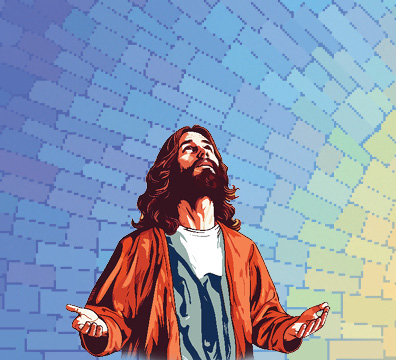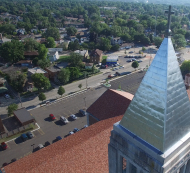Contemplating the Convocation
Besides celebrating Mass on Sundays, a question people frequently ask me is, “What do priests do during the week?” My initial response is that priesthood is so much more than a 9-to-5 job—it is more like a 24/7 vocation.
A priest is called to serve God and His people, and to assist his bishop by governing, teaching, and sanctifying. In modern times, it may seem like a priest is expected to be able to administer with an MBA, counsel with the spirituality of the saints, offer a love for the poor of Saint Mother Teresa, maintain the constant energy of a newly ordained priest, and resolve issues with the wisdom of a seasoned pastor.
While it is virtually impossible to embody all those expectations, leading a parish with a wide variety of ministries and missions in the Catholic Church has become more complicated and challenging. Therefore, there is a growing need to attend to the professional development and spiritual growth of priests. In the Diocese of Joliet, we are blessed to have a director of on-going formation for priests, Father Sunny Castillo, who currently also serves as pastor of Mary Queen of Heaven Parish in Elmhurst.
Besides coordinating a variety of programs for spiritual, educational, and professional growth, Father Sunny and a dedicated team of priests, staff, and volunteers also organize a bi-annual convocation. This September, the priests of the diocese all gathered at our four-day convocation to pray, grow in camaraderie, and learn from a series of talks presented by Sister Miriam James Heidland from the Society of Our Lady of the Most Holy Trinity.
Sister Miriam’s daily topics highlighted our theme, The Journey of the Priestly Heart: Building a Eucharistic Legacy in the Priesthood. At the very beginning, she said that one of the greatest dangers to priests is “a hardening of heart.” Using a powerful example, she explained that after the child Jesus was found in the temple, the Gospel says that the Holy Family returned home, and Jesus grew.
She warned us, “Woe is the day you stop growing as priests.” This stirring advice is good not only for priests, but also to anyone, especially when it comes to the spiritual life.
I wish space allowed me to share all her many other valuable teachings. Towards the end of the convocation, after Sister Miriam had departed, I pointed out to everyone that she has a true and deep respect for priests. I was moved to say, “I hope you love your priesthood as much as she does.”
Besides listening to Sister Miriam’s presentations, we also celebrated daily Mass, prayed the Liturgy of the Hours, and had the opportunity to pray a rosary, Divine Mercy Chaplet and daily holy hour with adoration and benediction. And between the prayers and talks, the priests shared with each other their struggles, their triumphs, and their leadership insights.
Evenings were spent enjoying rare social time with brother priests. At one dinner, we honored those marking a special jubilee year of their priesthood. The next evening, we celebrated our upcoming 75th anniversary as a diocese. Not only did we enjoy good food and conversation, but we competed in a friendly trivia game to see who knew the most about the history of the Diocese of Joliet. What a joy to learn more about the deep roots and richness of our diocese!
The last day of the convocation allowed me the opportunity to give a “state of the union” presentation in which I shared a good deal of information and issues, including a Q-and-A session and groupwide dialogue. Appropriately, before departing, we gathered for Mass one more time to thank God for all the blessings and fruits of the convocation.
I left the convocation with a smile on my face, deeply grateful to God for the time and space to renew our minds, bodies, and souls as a presbyterate. My gratitude bubbled over for our priests, and all the clergy, religious, and laity who make this Church so vibrant and wonderful.
May we all continue to grow in the knowledge, love, and service of the Lord and each other.




